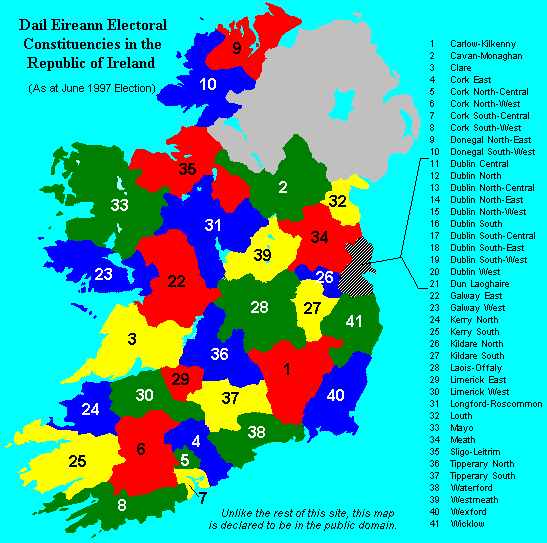On his knowstv.ca website, Bill Tieleman even presents some hard numbers to back up his claim:
"In Malta women make up just 9.2% of the country’s legislators, with only 6 women elected out of 65 representatives. In Ireland just 13.3% of elected officials are women.
By comparison, in British Columbia under our First Past The Post system, women make up 22.8% of our MLAs, 18 out of 79. While it isn’t representative of our society, it is significantly better than under either STV system.
And in Canada women represent 21.1% of all elected Members of Parliament, with 65 women out of 308 seats."
The implied conclusion is fairly apparent: somehow, STV is a deterrent to getting women elected.
So the question that then begs to be asked is: by what mechanism is STV able to influence an election outcome? Maybe the STV system can, in some way, recognize a listed candidate as being female and then siphon votes away from her? What if the candidate’s name is a little sexually ambiguous? Like Chris Scully? Or Pat Maclellan? Jiang Yuyuan?
This is, of course, absurd. The STV system can no more prevent women from getting elected than the First Past The Post (FPTP) system can aid them. The fact is that the degree to which women are elected to representative government is dependant on many factors that are independent of the type of electoral system utilized. Such factors could include women’s access to education, the level of a society’s acceptance of women in positions of leadership or the percentage of women that actually run for office in the first place.
But let’s give Mr. Tieleman the benefit of the doubt. In another article written in opposition to STV (Feb 10, 2005, Georgia Straight), he does actually cite Christy Clark who at least tries to give some rational as to why woman may be elected in smaller numbers under STV: geography.
"the fact that STV performs poorly in ensuring that women are represented in legislatures is never mentioned. Liberal MLA Christy Clark rightly points out that STV, where every constituency is much bigger and elects between two and seven MLAs, makes it harder for a woman MLA to meet the challenges of personal life while serving a very large riding."
Interesting theory, although it ignores the fact that the ratio of Members of Legislative Assembly (MLA) per 10,000 people (or whatever the number is) will still be the same under STV as it is now. But at any rate, if this holds true, then expanding the size of government ridings for a given geographical area should lead to a significant decrease in female representation in elected officials. Gee, if only there was some way of testing this hypothesis out…. I wonder if we had any countries or territories where we can compare female representation under different sized ridings but the same electoral system…
Actually, we can and we can turn to Mr. Tieleman’s example as inspiration. As he has stated, in BC women make up 22.8% of our MLA’s. Now jump up a level to our federal government, where the size of the federal ridings in BC are more than twice as large as our provincial ridings. Do we see a significant decrease in the percentage of female Members of Parliament (MP) compared to MLAs? No, we actually see an increase, to 27.7% (as of 2007).
Furthermore, you can expand this test to the whole of Canada, where our 308 federal ridings are, on average, almost 3 times larger than the provincial ridings which, when combined, total 846. Here, we find female representation, provincially, does not increase significantly as Mr. Tieleman and Ms. Clark would suggest but actually decreases to 19% (as of 2007) from Mr. Tieleman’s number of 21.1%. Geography is simply not relevant.
So with all due respect to Ms. Clark, I believe she is confusing issues as her line of reasoning on why BC-STV should not be accepted (that it would be too much work for women trying to juggle career and family) can be applied to a whole host of situations outside of electoral reform.
For example, being a cabinet minister or even a premier would also make it difficult to balance the conflicting obligations of personal life and political careers because of the increased responsibilities that they hold. In fact, by her logic, any job that is in any way challenging would be discriminatory to women. Unfortunately, she is mixing the issues of electoral reform with the issues of women in the work place and how we support them as they try to balance the competing responsibilities of personal and professional life.
But what I find most incredible about this whole line of argumentation is just how badly Mr. Tieleman, in his blind zeal to latch on to any and every argument against BC-STV, no matter how spurious, contradicts himself from article to article.
In the Georgia Straight article, he tries to argue that BC-STV is bad because the larger ridings will lead to fewer women getting elected, but then on his website he cites Ireland as an example with their lower percentages of females in elected positions (compared to BC).
Has he seen the size of the ridings in Ireland?
Here is a picture of the Republic of Ireland’s electoral map wih it’s 43 constituencies:

Here is one for BC and our 79 ridings:

And here is a map of the world, just to get a little perspective (click the pic to zoom in).

BC, at about 925,000 km2, is more than 10 times the size of Ireland at 70,000 km2. This works out to an average size of roughly 12,00 km2 per riding for BC, more than 7 times larger than Ireland’s constituencies (which are around 1,600 km2 in size). Yet despite the huge increase in riding size BC has way more women elected to representative government, exactly the opposite of the point Tieleman is trying to make in his Georgia Straight article.
It should be obvious that Bill Tieleman is not being very honest in presenting his point of view. It seems evident to me that he has not made his decision about BC-STV based on actual merit but has simply decided from the outset to take a stance against it, and then has just thrown any and all arguments out there with the goal of confusing or deceiving his readers. That should call into serious question his credibility as a commentator on this subject.
Back to Criticisms Mainpage.
No comments:
Post a Comment